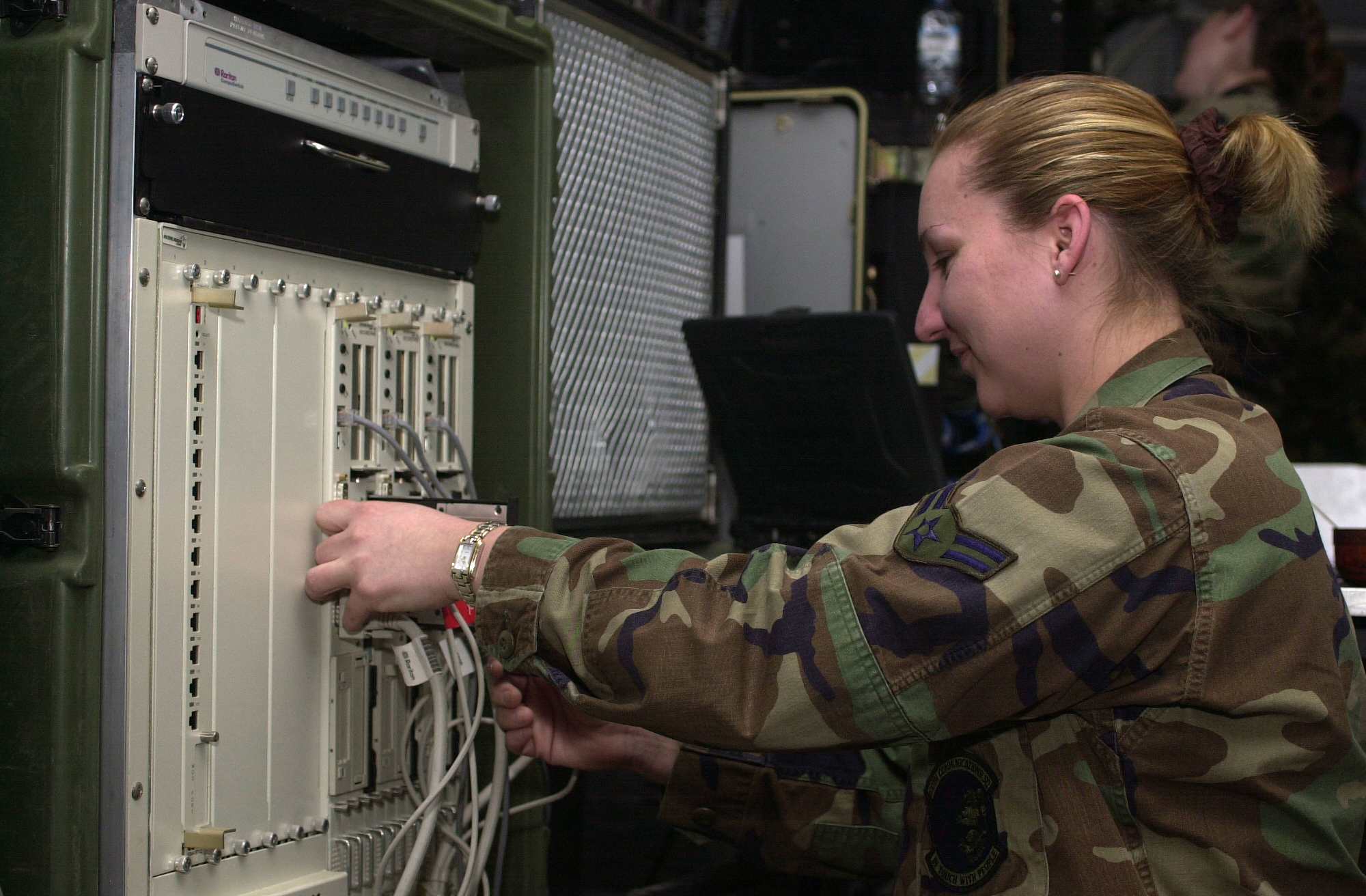When I made my decision to transition out of the military I had one goal in mind: Getting into a career that would allow me to pay the bills and provide a good life for my family, and that had great opportunities for future growth.
I had been in the military ever since I graduated high school so I didn’t know much about making it in the civilian world. So I signed up for TAP expecting to learn about my options and get mentorship from people who had made it outside of the military.
I wasn’t even close!
All I did was sit in a classroom for an entire week listening to an old guy with a giant beer belly preach about how I could become a truck driver or a cop.
I mean, nothing wrong with being a truck driver—it’s a tough job. Same with cops—their job can even be more dangerous than real combat where at least you know who your enemy is. You know what I mean?
Anyhow, I thought that TAP was gonna instruct me on how to get started in the civilian world, and how to secure future success. But instead, I had to learn about careers that wouldn’t realistically allow me to meet my goals. You see, truck driving might not even exist in the near future because automation will probably wipe it out… And I didn’t want to be a cop. Those people have to risk their lives every day and, sadly, aren’t paid well enough nor respected by many civilians.
If you’re a transitioning vet, you have a particular set of skills that most civilians don’t—and you can use it to your advantage. Unfortunately, many vets don’t realize this.

You know why? Because when the people that are supposed to guide you don’t truly know what they’re talking about, how can you expect them to truly help you?
Look, as a military vet you obviously have a valuable skill set. You’re disciplined, coachable, results-oriented, etc. You can work in teams, thrive under pressure and don’t expect anything to be handed to you on a silver plate.
Does this sound like you?
Of course it does! You served for the strongest military on the planet. Now that’s a big differentiator! Most civilians tend to lean toward the opposite of that. But when you’re surrounded by people with the same level of work-ethic, it could be hard to realize it. Sometimes you need someone to point it out. To you it might seem normal—but your skill set is extraordinary in the civilian world, especially nowadays when people can’t go 10 minutes without looking at their social media feeds.
Your Best Option
When you transition out of the military you pretty much have 2 choices: you can go to college, or you can break into a field that doesn’t require a degree.
There’s one little issue with each one of these options. Going to college typically takes four years. Sure you may have your G.I. Bill money, but that’s still a long time. On the other hand, fields that don’t require a college degree usually don’t offer great pay and have very limited opportunities for growth. So what’s the best thing to do?
Well, that would be breaking into a field that allows you to pay all of your bills pretty much right out off the gate, that offers amazing opportunities for long-term growth, and doesn’t require a freaking degree!
That field is… Information Technology (IT)!
It’s perfect for vets—especially if you have a security clearance because many employers are in need of cleared IT workers.

Here are the basics of what you need to break into this field:
Step 1
Get an experienced mentor, preferably a fellow veteran who has had major success in information technology (someone who has held a position paying 200k a year or something along those lines).
Step 2
Create a plan to gain technical hands-on experience and earn a vendor-agnostic certification. This should only take you 3 to 6 months tops.
Someone who tells you otherwise probably only knows about the conventional way of breaking into IT, which supposedly requires a degree, but that’s just a bunch of B.S.
Step 3
One option is to break into an entry-level role. These roles can be repetitive and boring at times, but this isn’t bad. Use the free time at work to keep learning new skills. This way you can learn while you get paid and build up your resume. Remember, it’s a stepping stone in your journey of leveling up your career and as long as you are hungry and always trying to learn more, you won’t be stuck in this position for long.
Another option is to find an apprenticeship program. In fact, we recently paired up with Booz Allen Hamilton and LeoRose Consulting to offer an apprenticeship program to support the Department of Veterans Affairs (VA) Information Technology (IT) Operations. This is an amazing opportunity for veteran IT students to have immersive experiential learning and a possible long-term employment opportunity. All apprenticeships are a little different, but this one in particular offers full-time W2 work (expecting about 40 hours a week) with possible full-time employment and over 2000 locations all across the US. This application is available now if you are ready to get started.
Step 4
Once you have broken into an entry-level role, let your manager know that you’ve been learning new skills and that you want to volunteer to help with more challenging tasks (yes, even if you have to stay extra hours and not get paid for them).
Ask him if he has any suggestions, or if there’s any advice in regards to moving up in your career that can help you have a clearer north or give you a better sense that you’re on the right track. Trust me, your managers will appreciate dedication and hustle, just like in the military. This won’t be an issue for you since you already have a remarkable work ethic.
The thing about information technology is that if you have hands-on experience and 1 entry-level certification, you’d be able to break into a job paying you between 40-55k a year (depending of where you are).

From there you could become a network engineer, making between 65k and 90k, in less than a year. And, after that, if you play your cards correctly and your mentor knows his stuff, you’d be able to break 6 figures within 2-4 years.
Not bad for a few years of civilian life, right?
Well it gets even better because technology changes so fast that every year there are new technologies that people need to learn. This makes it a really engaging field to be in, but most importantly, it allows newbies to become rock stars in a short amount of time.
The bottom line
TAP isn’t going to provide you with the best advice nor present you with the best opportunities to succeed in the civilian world. They’re just going to talk to you about a few roles that, in my opinion, won’t set you up for success. You could either transition to one of those careers or you could go to college and earn a degree so that maybe after four years you break into an entry-level job.
Or…
You can seriously consider a career in information technology, which will provide you with everything you need to have major success. And, needless to say, with a career that will push you to learn new concepts and develop new skills all the time—trust me, you’ll never be bored unless you simply want to be.
Even if you get stuck with a boring job (and that would only happen if you don’t have quality mentorship) there are still tons of interesting things to learn and do.
The most important thing of all, as you probably already figured out, is having an experienced mentor who has had great success and is willing to coach you. If he/she is a veteran even better! Then they’ll have a pretty good idea of what vets go through when transitioning back to the civilian world.
If you’d like more information about how to break into the information technology industry and start moving up, I’d suggest you attend this free online masterclass. You’ll get detailed insights on what to do to break into the industry, how to get a mentor, the best ways to gain hands-on experience, and the latest tech trends you can take advantage of.
Remember, your skill set and experience as a military veteran are very valuable to the business world. Any company would benefit from having you on their team.
So there’s no reason for you to settle for a job that isn’t going to pay you what you’re truly worth, and push you to improve yourself every day—something that all vets would appreciate, don’t you think?
Here’s the link to that free online masterclass again.

0 Comments